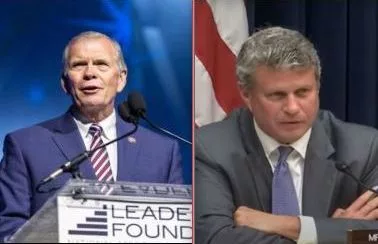
As the U.S. House prepares to vote on the debt ceiling deal Wednesday, both southwest Michigan representatives in Congress are planning to vote for it. Congressman Tim Walberg told us Wednesday afternoon there were a few reasons he decided to back the plan.
“One, we have to pay our debts, and whether we pass this bill or not, we’re going to have that debt of $4 trillion that’s going to have to be paid at some point in time, and we might as well pay it off on time and not let out dollar be devalued and cause a lot of problems for business, industry, the stock market, and our standing in the world,” Walberg said. “So, we’ve got to do it.”
Walberg said of key importance are the work requirements for those receiving federal aid. Congressman Huizenga told us the plan is the first real reduction of federal spending since the end of World War II. It also requires actual budgeting by Congress, rather than allowing a never-ending series of continuing resolutions.
“In fact, what it says if that were to happen, there would be an automatic 1% across the board cut on all spending,” Huzienga said. “All spending would be reduced 1% if that were to happen, and that is a situation that I think will force the Senate and the House to do its job again.”
Huizenga said no one was going to get everything they wanted in the bill.
“This is a start,” Huizenga said. “This is not the end, this is not the finish line. This is the start of a process, but I’m glad we’re not just simply doing a clean debt increase and there were some of these reforms in place.”
Some conservative members of the House planned to oppose the deal. Walberg said said that was their right.
“I get where they’re coming from,” Walberg said. “I’d like it to be a perfect bill and do everything that we need to do at this time, but in a congressional situation, in the legislative process, perfection doesn’t happen.”
Huizenga said the package reforms the permitting process to allow more energy projects and claws back billions in COVID funding awarded to local governments that hasn’t been spent yet. Walberg said the new deal reins in the executive branch by requiring its to identify funding sources for new programs, and also stops student loan payments from being suspended. He called it “a major step forward,” a “good proposal,” and a “starting point.” Both Walberg and Huizenga expected the plan to pass the House.






